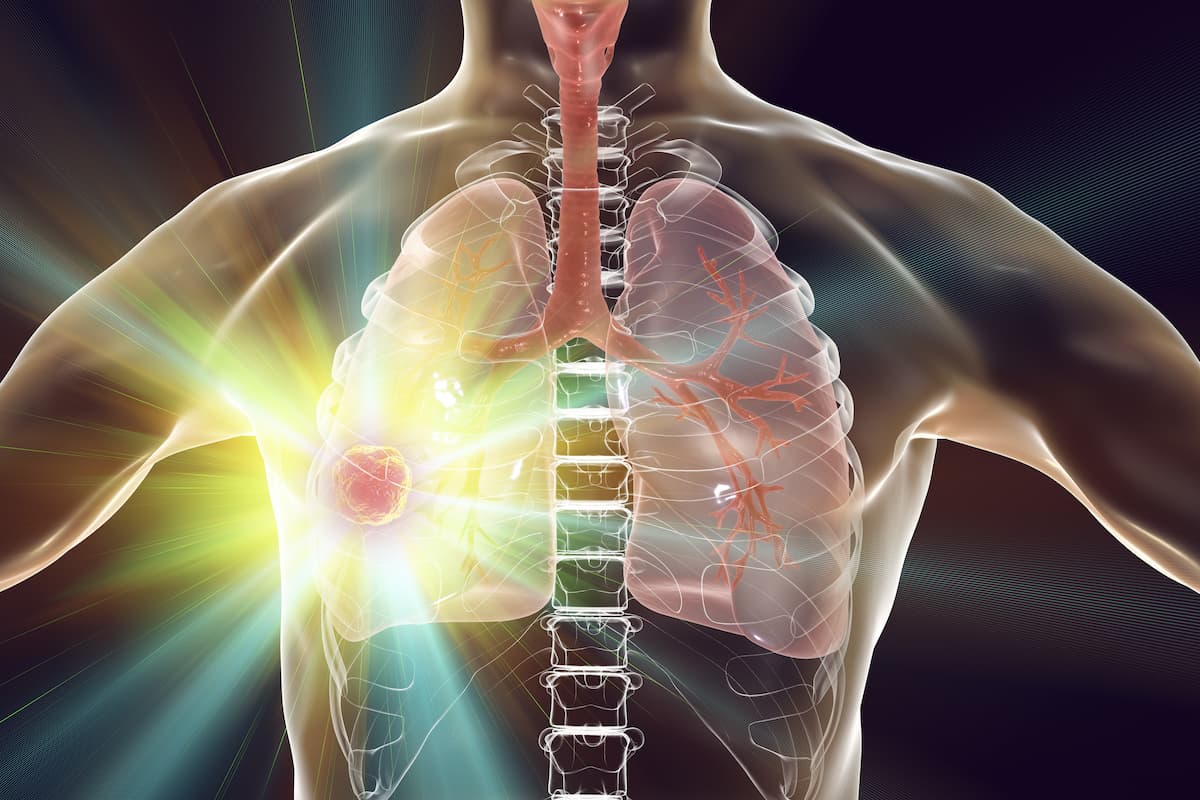Visugromab Combo Produces Responses in Advanced NSCLC/Urothelial Cancer
Treatment with visugromab plus nivolumab in patients with relapsed/refractory solid tumors in the phase 2a GDFATHER-2 trial appears to exhibit safety and tolerability.
The phase 2a portion of GDFATHER-2 is one part of an ongoing phase 1/2a trial evaluating visugromab plus a PD-1 checkpoint inhibitor in various advanced relapsed/refractory solid tumors.

Combining visugromab (CTL-002) with nivolumab (Opdivo) produced promising anti-cancer activity in patients with advanced non–small cell lung cancer (NSCLC) and urothelial cancer, according to a press release on findings from the phase 2a GDF-15 Antibody-mediaTed Human Effector Cell Relocation (GDFATHER-2) trial (NCT04725474).1
Data presented at the European Society for Medical Oncology (ESMO) Immuno-Ooncology Congress 2023 highlighted an objective response rate (ORR) of 14.8% (n = 4/27) in both the NSCLC and urothelial cancer cohorts, as well as an ORR of 21.1% (n = 4/19) in a group of patients with non–squamous NSCLC. Investigators reported that the median duration of response (DOR) was higher than 11 months in the nonsquamous NSCLC cohort and 10 months in the urothelial cancer group.
Patients had responses after receiving study treatment regardless of whether they had tumors that were PD-L1 positive or negative. Of note, all 3 patients in the urothelial cancer cohort with a PD-L1 tumor proportion score higher than 5 had a response, which included 1 with a complete response in the fourth--line setting and 2 others with partial responses. Investigators reported that all responses in this subgroup were ongoing.
Treatment-emergent adverse effects (TEAE) higher than grade 3 affected 5.2% (n = 9/174) of the study population. A serious AE higher than grade 3 occurred in a single patient (0.6%), which investigators deemed as potentially being related to study treatment.
“These data, in particular the clinical efficacy and durability of responses observed with visugromab/nivolumab in non-squamous NSCLC and [urothelial cancer] are truly exceptional for advanced-stage/last-line, anti-PD-1/PD-L1 relapsed/refractory solid tumor disease treated with an [immuno-oncology] combination therapy,” Professor Eugen Leo, chief medical officer at CatalYm, said in the press release.1 “It underscores visugromab’s potential for reversing immunotherapy-refractoriness and restoring [checkpoint inhibitor] activity back to levels that are at or near [checkpoint inhibitor]-naïve disease.”
The phase 2a portion of GDFATHER-2 is one part of an ongoing phase 1/2a trial evaluating visugromab plus a PD-1 checkpoint inhibitor in various advanced relapsed/refractory solid tumors. In the phase 1 portion, investigators assessed up to 5 dose levels of visugromab administered intravenously before proceeding with a defined dose level in phase 2.
The trial’s primary end points are AEs in parts A and B and clinical efficacy based on RECIST criteria in part B. Secondary end points include the pharmacokinetics of visugromab.
Patients 18 years and older with relapsed/refractory advanced or recurrent cancer and disease progression following prior therapy with an anti–PD-1 or anti–PD-L1 treatment were eligible for enrollment on the trial. Additional eligibility criteria included having an ECOG performance status of 0 or 1 and a life expectancy of more than 3 months.
Developers announced that they launched their phase 2a GDFATHER-2 program in March 2022.2
“We continue to make important progress in our phase 2 evaluation of visugromab, further demonstrating the potential of GDF-15 neutralizing approaches as a critical component for treatment success in a broad range of anti-cancer regimens,” Phil L’Huillier, managing director and chief executive officer at CatalYm, concluded.1
References
- CatalYm presents positive phase 2a outcome for visugromab in advanced NSCLC and urothelial cancer at the ESMO Immuno-Oncology Congress 2023. News release. CatalYm. December 6, 2023. Accessed December 7, 2023. https://shorturl.at/bdiUX
- CatalYm commences phase 2 development of GDF-15-targeting antibody CTL-002 following successful phase 1 completion. News release. CatalYm. March 1, 2022. Accessed December 7, 2023. https://shorturl.at/kvLMR